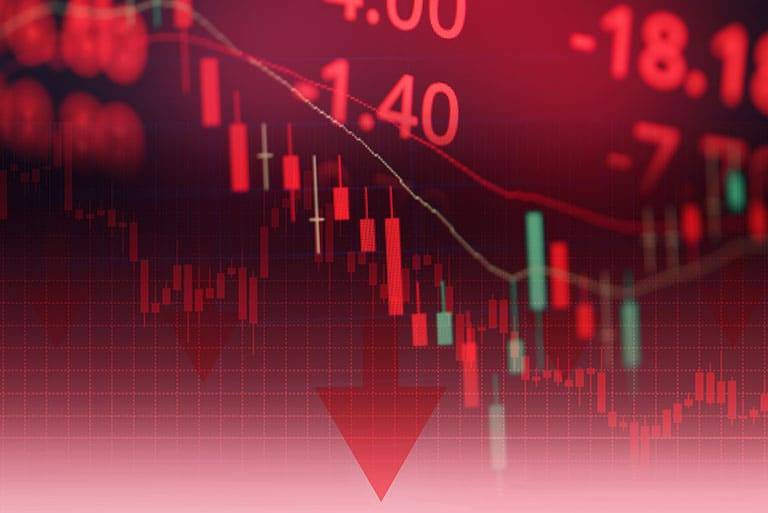In Decline
For the first time since 2020, prices in the Chinese economy have begun to decline year over year. Deflation would be a burden for household spending and durable goods purchases, as people would delay purchases in expectation of cheaper prices. China prioritises economic recovery, which is why it has announced various measures and made a lot of pledges to enhance the business environment in the last two months. Concerns about an economic downturn are growing.
The Chinese government offers vague guarantees of increasing consumer expenditure on home items and automobiles, as well as backing for private firms, with little precise detail. Investors are wary of the commitments thus far and are looking for more clear suggestions and direct stimulus measures. More direction in this area is expected at the forthcoming Communist Party Politburo meeting in August.

The Chinese Central Bank Boosts the Economy
At a working meeting in early August, the People’s Bank of China stated its preference for lower interest rates and down payments on individual home loans. Its approach is part of a plan to satisfy the population’s strict housing demand. As a result, the People’s Bank of China will continue to advise commercial banks to timely alter the interest rates on current personal home loans.
According to experts, it is critical for China that the real estate market, which has been sluggish since the bankruptcy of megadeveloper Evergrande, remains steady. Regulators have highlighted the need for maintaining stable real estate finance and increasing financial assistance for home leasing, suburban revitalization, and affordable housing building.
Wealth Aggregation: Simple, Dynamic, and Secure Beyond Compare. Discover the Altoo Wealth Platform!
This all can be seen as a strong indication of a coordinated effort to reduce local debt risks through financial assistance, as well as an aim to enhance instruments and funds to avoid and mitigate systemic concerns.

Construction and Housing Market Assistance
The State Council, presided over by Premier Li Qiang, has increased its support for real estate development by stating that the government will fund the rehabilitation of so-called urban villages, or suburbs of large cities. It also wants to attract more private finance to initiatives that will increase domestic demand and accelerate urban growth.
To guarantee that houses under construction are handed over to families, financial regulators have offered loan reductions to developers. In order to minimise the cost of financing home loans, the People’s Bank of China has stated that lenders will be allowed to renegotiate mortgage contracts or banks will be able to issue fresh loans to them. Regulators are also contemplating loosening limitations on house purchases in the country’s main cities, which may alleviate a bottleneck that has constrained demand in China’s largest cities such as Beijing and Shanghai for years.
Automobiles and Home Products
The major economic planning agency, the National Development and Reform Commission, has presented a ten-point plan to boost the purchase of automobiles, particularly new-energy vehicles, including lowering the cost of charging electric vehicles and extending tax incentives. The Commerce Department started a six-month campaign in June to increase automobile sales and encourage the use of electric vehicles in rural regions.
Moreover, thirteen government ministries laid out a strategy to raise family spending on everything from electronics to furnishings. The central government is asking local governments to assist inhabitants in renovating their homes, and individuals should have easier access to loans to purchase household goods.
Interest rates and Currencies
The People’s Bank of China has changed several restrictions to allow enterprises to borrow more from overseas, potentially opening the door to larger foreign capital inflows. It has also strengthened the daily currency fix. This is a departure from the People’s Bank of China’s former policy, which prohibited the accumulation of foreign currency debt in fear of corporate over-indebtedness.
In 2023, China’s central bank will slash key interest rates many times, giving a monetary boost to the economy. The action comes in the wake of data showing a fall in the housing market, a concerning drop in private sector investment, and record young unemployment.

The Private and the Technology Sectors
The Communist Party and the government issued a rare joint pledge to improve conditions for private enterprises, outlining 31 measures, including a pledge to treat private companies the same as state-owned enterprises, to consult more with entrepreneurs, and to lower entry barriers for firms.
In the technological sector, the top internet regulator issued 24 rules for ChatGPT-type services, loosening some of the limitations it had placed only a few months before. Financial authorities, on the other hand, ended a nearly two-year attempt to regulate the industry with fines of more than one billion dollars for digital behemoths Ant Group and Tencent Holdings.
These findings suggest that, with the exception of the introduction of cheaper money into the banking system, communist-dominated China’s efforts to salvage its economy have thus far failed.









